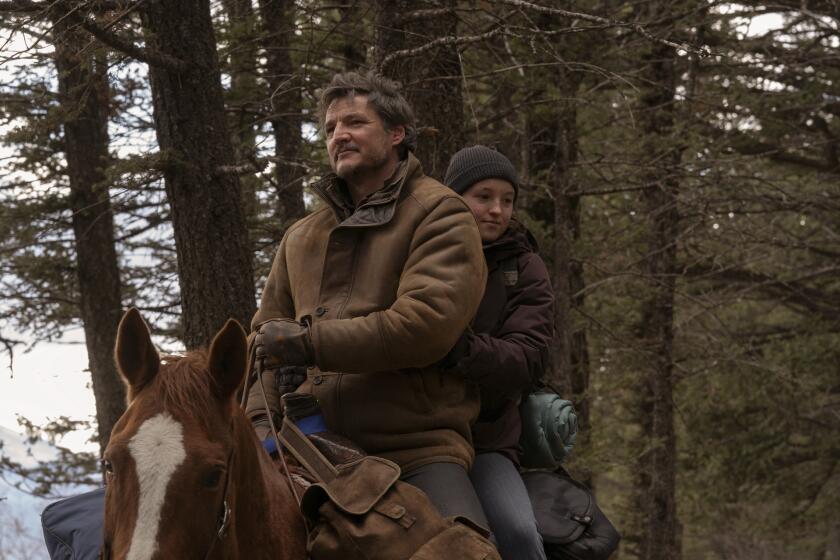Sunset Junction’s operating permit application denied
- Share via
Los Angeles city officials voted Monday to deny operating permits for this weekend’s Sunset Junction festival, a decision that could mean the cancellation of one of the city’s best known music events for the first time in three decades.
Members of the Board of Public Works voted 3-1 to deny the application from the Sunset Junction Neighborhood Alliance, citing nearly $400,000 in unpaid fees for the 2011 and 2010 festivals. But they left open the possibility that they might reconsider the decision at their next meeting Wednesday if organizers can raise the nearly $142,000 owed for this year.
“The city is in a fiscal crisis,” said Andrea Alarcon, board president. “It’s quite disrespectful … that you would pay your legal counsel, that you would pay your entertainment acts, that you would pay various other entities and be receiving funds from sponsors, yet you do not and will not and have not paid the city for its services.”
Festival organizers dispute the way the fees were calculated, alleging that comparable festivals are charged significantly less for policing, street closures and other city services.
Attorney Phillip Tate, who represents the festival, had asked the board to accept about $50,000 now and submit the rest of the bill to mediation. He told the board he did not believe organizers had more than that available but had asked for time to try to raise the rest.
“We’re obviously disappointed with what happened,” Tate said after the meeting, but added that the alliance remains committed to putting on the festival this weekend.
The decision capped a morning of emotional testimony from organizers, musicians, residents and business owners.
Former hairdresser Michael McKinley founded the festival in 1980 in hopes of easing tensions between the neighborhood’s growing gay population and the middle-class Latino families that had long called Silver Lake home. It began as a small, free street fair but expanded as the neighborhood gentrified into an internationally known event with $25-a-day tickets, several blocks of street closures and big-name musical acts that draw more than 60,000 revelers over two days each August.
“Because of us, the neighborhood has changed,” McKinley told the board. “It’s kind of hipsterville.”
The festival also helped nurture a burgeoning music scene while staying defiantly eclectic, often introducing long-lost soul, funk and reggae bands to younger audiences. In recent years, L.A. indie bands including the Airborne Toxic Event, Local Natives and Dawes have played career-bolstering sets at the festival, and dozens of younger acts earned validation from playing its stages.
Local artists who are booked for the festival pleaded with board members to reach a compromise with the organizers.
“We have spent countless time and energy preparing for this festival,” said Steven Wilkin, a member of the experimental rock band Vanaprasta. “It’s something that’s been a staple in the community for 30 years, bringing communities together and celebrating diversity as well as music.”
Former gang members and other at-risk youths described the transformative effects of the sports teams, the jobs programs and other charitable efforts funded with proceeds from the festival, which McKinley said costs between $650,000 and $700,000 to stage and raises about $250,000 a year for the neighborhood alliance.
“I’m the living proof,” said Rafael Dos Santos, a graphic designer. “I used to be involved with drugs. I used to be involved with a lot of bad things when I was growing up, and through their programs, I changed my life around.”
But as the festival has expanded, it has also drawn growing criticism from residents and business owners unhappy about the street closures and heavy traffic it brings to the neighborhood’s narrow winding roads. Some complained Monday that the festival’s fenced-off boundaries and admission fee have turned the festival into a commercial affair that hurts local businesses.
“I don’t believe that we can celebrate diversity at $25 a ticket on public streets,” said Joseph Keeper, who owns a store selling barware on Sunset Boulevard. “My business is impacted negatively.... In order for me to sell any goods to my customers, they have to have spent $25 to get in.”
Valerie Lynne Shaw, the lone dissenter on the board, argued that the festival should be given a chance to come up with the estimated fees for this year’s event, saying a last-minute cancellation could be the end of the neighborhood alliance.
Alarcon said there is no question the alliance does “wonderful work” but suggested it has not been a good partner to the city.
“What you’ve asked us to do is to take in good faith that you’ll pay,” she said. “Last year we did extend a good-faith effort and believed that you would submit payment after the event occurred. To date, this city has not received a penny.”
As they left the hall, disappointed organizers said they weren’t giving up yet.
“People need this festival, they’re counting on it for their livelihoods,” said Sunset Junction booker Jennifer Tefft. “All we need is a loan for a week. We’ll have every penny of this after the festival.”
More to Read
The biggest entertainment stories
Get our big stories about Hollywood, film, television, music, arts, culture and more right in your inbox as soon as they publish.
You may occasionally receive promotional content from the Los Angeles Times.











